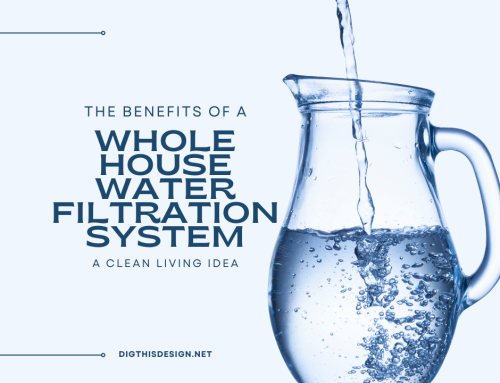Sustainability has become more than just a buzzword in agriculture. Among the forefront are commercial solar-powered farms, where farmers use the sun’s energy to fuel crop growth. But did you know you can also do your own green home farming? This article explores how to instill sustainable practices in your farm. With renewable energy and innovative farming practices, learn the substantial advantages they bring to farmers and the environment and how you can get started with the green life.
Why Agrivoltaic Farming: Top 3 Reasons to Go Solar
Agrivoltaic farming, also called solar farming, is when you combine farming with solar energy. Instead of having just crops or solar panels on a piece of land, you have both. Solar panels provide shade for crops or animals, making them grow better.
Plus, you get renewable energy from the solar panels to power farm operations. With solar farms, you get to produce food while using clean energy and preventing harm to the environment.
Farmers in East Africa have already reaped the benefits of solar energy with solar farming—and there are plenty of reasons you should, too.
1. Reduced Energy Costs
Harnessing solar power for home farms significantly lowers a farm’s dependence on conventional grid electricity. This leads to substantial savings on energy bills, allowing farmers to allocate resources to other essential aspects of their operations.
2. Tax Incentives
Many governments offer financial incentives, tax credits, and grants to encourage individuals to use solar energy. These incentives can significantly reduce the upfront costs of installing solar panels on farms.
3. Sustainability
Solar energy is a clean and renewable source of power. By using solar panels, farms reduce their carbon footprint and contribute to environmental sustainability. This can enhance a farm’s image and appeal to environmentally conscious consumers.
Easy Sustainable Practices for Your Poultry Farm
Sustainability in agriculture goes beyond powering your home farm with solar energy. Here are doable ways to give back to the environment while enjoying its advantages.
Proper Waste Management
Sustainable waste management involves minimizing waste generation, recycling materials, and safely disposing of residual waste. Consider applying the following tips to get rid of the nasties in your farm properly:
- Implement a comprehensive recycling program, separating recyclable materials like paper, plastic, glass, and metals from general waste.
- Composting organic matter can reduce landfill waste while producing nutrient-rich soil amendments for gardening or farming.
- Reuse items, such as containers or packaging, to significantly decrease waste production.
- Properly handle, store, and dispose of hazardous waste to prevent environmental contamination.
Water Conservation
Sustainable water conservation practices in poultry farms are essential to reduce water use, minimize environmental impact, and ensure efficient operations. Here are a few sustainable ways to conserve water:
- Install rainwater collection systems, such as roof gutters and storage tanks, to capture and store rainwater for poultry drinking and farm irrigation.
- Implement drip irrigation systems in outdoor poultry areas to deliver water directly to the root zones of plants, reducing water wastage compared to traditional sprinkler systems.
- Invest in water-efficient equipment, such as low-flow poultry watering systems, which reduce water waste during drinking.
- Regularly inspect and maintain water supply systems to detect and repair leaks promptly, preventing unnecessary water loss.
Energy Efficiency Practices
Aside from installing solar systems, there are plenty of ways to use energy in your home farms more efficiently. The following are just a few examples:
- Natural poultry ventilation: Good ventilation in poultry coops reduces the need for energy-intensive cooling systems. Design your coop for proper airflow using durable, UV-resistant poultry netting within the coop structure to ensure security against predators while allowing natural ventilation.
- Energy-efficient lighting: Reduce energy consumption by using energy-efficient LED lighting in poultry coops. To power coop lighting sustainably, consider integrating solar panels into chicken netting to create shade structures that capture solar energy.
Eco-Friendly Poultry Solutions
Here are some eco-friendly poultry solutions that you can try:
- Integrated pest management: Implement natural pest control methods, such as introducing beneficial insects or using diatomaceous earth, to minimize the need for chemical pesticides. Encourage using chicken netting to create secure enclosures for chickens to help reduce insect populations and protect against predators.
- Natural supplements and foraging: Provide natural supplements like oyster shells and encourage chickens to forage for insects and plants. Farmers reduce their reliance on resource-intensive commercial feed, which often contains soy, corn, and other crops associated with deforestation and resource depletion, by offering natural supplements and allowing chickens to forage.
Home Green Farming – Sustainable Is the Way
Embracing sustainability in poultry farming isn’t just a trend; it’s a step towards a greener, more efficient future. Whether you’re a seasoned poultry pro or just dipping your toes into the farm life, integrating these eco-friendly tips into your chicken-raising journey benefits your farm and more. You reduce your environmental footprint, create healthier living conditions for your birds, and enjoy tastier, locally sourced eggs.
Here’s to a more sustainable future for poultry farming!
5 Ways to Make Your House Environmentally Friendly Yet Fashionable





